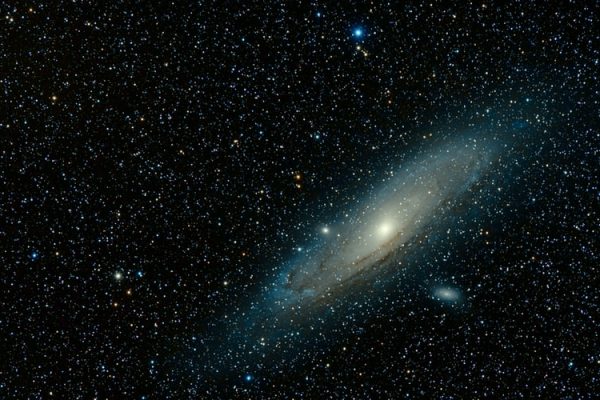“And to Allah belong the Most Beautiful Names, so invoke Him by them” (Qur’an, 7:180).
“And to Allah belong the Most Beautiful Names, so invoke Him by them” (Qur’an, 7:180).
In my previous article, we mentioned that there are three components of Tawheed, namely:
- Tawheed of Lordship (Tawheed ar-Ruboobeeyah)
- Tawheed of Names and Attributes (Tawheed al-Asmaa was-Sifaat)
- Tawheed of Worship (Tawheed al-‘Ibaadah)
With the last article, we specifically discussed the first component. The second component has two parts, namely the Names of Allah and His Attributes. We should have complete and unshaken belief in those Names and Attributes of Allah that are confirmed by the Holy Qur’an and the authentic (Saheeh) Traditions (Ahadith) of the Prophet (peace be upon him-PBUH). One may believe in the Lordship of Allah, but they may still harbour doubt about His Names and Attributes (Jahangir, 2002; Jahangir, 2017).
For example, when the disbelievers of Makkah were called upon to prostrate to Allah – the Most Gracious (Al-Rahman), they used to question thus – “And what is the Most Gracious? Should we prostrate to that which you order us?” (Qur’an, 25:60). This amounts to rebelliousness against Allah. Therefore, we have to believe in Allah’s Names and Attributes as they are. We cannot increase or decrease in them nor can we compare them with anything else. For example, we cannot compare Allah’s anger with human anger because the anger of human beings is their weakness while Allah is above any weaknesses. To quote Allah’s words, “There is nothing like unto Him” (Qur’an, 42:11).
Today, we shall reflect upon the Names of Allah, the first portion of the second component. The Holy Qur’an and the Prophetic Ahadith (plural of Hadith) mention a good number of Allah’s Names. For example, Al-Rahman (The Most Gracious), Al-Raheem (The Most Merciful), Al-Malik (The King), Al-Quddus (The One Free from Deficiencies), Al-Salam (The Granter of Safety), Al-Mu’min (the Granter of Security), and Al-Muhaimin (The Watcher). In order to correctly believe in those Names, we need to maintain certain principles as enunciated by Sheikh Al-‘Uthaimeen (2010), which are presented below in brief:
- Allah’s Names are beautiful. As says Allah, “And to Allah belong the Most Beautiful Names, so invoke Him by them” (Qur’an, 7:180). “Most beautiful” is used in the sense that His names are of perfect qualities. There is no shortcoming or flaw in them. For example, Allah is “Ever-Living” (Al-Hayyu). This means that Allah is always in existence. There is no pre or post-life time for Allah.
- Allah’s Names are both proper names and attributes. For example, “And He is the Oft-Forgiving, the Most Merciful” (Qur’an, 10:107). Here both Oft-Forgiving (al-Ghafur) and the Most Merciful (al-Raheem) refer to Allah in the first place and then to His qualities of forgiving and mercifulness.
- When any of Allah’s Names goes beyond Himself to impact His creations, then that Name indicates three principles:
- That Name refers to Allah (as a proper name);
- That Name is an Attribute of Allah; and
- The implication of that Attribute is affirmed.
Thus, for example, Allah lays down severe punishment for highway robbery at verse 33 of Surah (5) Al-Ma’idah of the Holy Qur’an. Allah makes an exception at verse 34 of the same Surah for those who repent (tawbah) before being overpowered (arrested)/punished, because “Allah is Oft-Forgiving and Most Merciful.” Here, these two Names of Allah imply, in addition to confirming the first two principles, that the criminals who have repented are forgiven by Allah from the regular punishment of the crime and the court of law may award them some lesser punishment.
However, where a Name of Allah does not extend beyond Himself, there is no such implication on the creation. For example, Allah is “Ever-Living” (Al-Hayyu) and “Ever-Lasting” (Al-Qayyum).
- There are certain necessary and logical consequences of the Names of Allah. For example, Allah is the Creator- “Al-Khaliq“. This Name indicates that Allah has both knowledge and ability to create. Thus, we can see Allah’s Attributes of knowledge and ability in the following verse indicating His power of creation:
“Allah is He Who Created seven Firmaments and a similar number of the earth. Through the midst of them (all) descends His Command so that you may know that Allah has power over all things, and that Allah comprehends all things in (His) knowledge” (Qur’an, 65:12).
- We must limit ourselves to the Names that Allah Himself and His Prophet (peace be upon him- PBUH) have mentioned. We must not apply our intellect in this matter and add something to or deduct something from them because “(t)he human mind cannot grasp or understand what Allah – with His Might, Majesty and Magnificence – deserves in terms of names” (Al-‘Uthaimeen, 2010, p. 27). Allah’s command for us in this respect is that we (humans) must not follow (by way of saying, doing or otherwise) anything of which we do not have any knowledge because the hearing, the sight and the heart will be questioned (by Allah on the Day of Judgment) (Qur’an, 17:36). Thus, for example, Allah gets angry as said in this verse, ” Allah is angry with them, curses them and has prepared for them an evil end” (Qur’an, 48:6). But we cannot describe him with a name of al-Ghaadib (the Angry one), because Allah or the Prophet (PBUH) did not give Him this name (Philips, n.d.).
- Allah’s names are not limited to any particular number. In addition to the Names mentioned in the Qur’an and Sunnah, there are those which are in the knowledge of Allah alone. To quote the Prophet (PBUH),
“I ask You by all of Your Names that You have named Yourself with, have revealed in Your book, have taught to one of Your creation, or have kept exclusively with Your knowledge from the matters of the unseen” (cited in Al-‘Uthaimeen, 2010, p. 29).
Of course, there is one Hadith according to which Allah has ninety-nine Names, whoever enumerates them (memorises, understands, and worships Allah based on the belief therein) will enter Paradise (Bukhari 7392). However, this Hadith is a weak one while the above one is authentic. Hence, the above Hadith should take precedence over this one. Of course, there is no contradiction between these two Hadiths. The Hadith of 99 Names does not mean that Allah has only those (99) Names. Rather it means that whoever memorises and acts upon those 99 Names among from all the Names of Allah will be rewarded with Paradise (Al-‘Uthaimeen, 2010, p. 30).
- We must give the rights the Names of Allah do deserve. We must use the Names specified for Him to denote His Proper Name and Attributes without giving any share of them to anybody else. And then, we must worship Him based on the belief in them. Otherwise, this will result in injustice to them. The injustice may be of the following forms:
- Outright rejection of Allah’s names;
- Equating Allah’s Attributes with those of the created beings;
- Giving Him a name that Allah Himself or His Prophet did not give, such as the Christians give Him the name, “the Father”;
- Taking a derivative from His Names and ascribing it to a false idol, such as the Polytheists of Makkah named an idol as Al-‘Uzza taking it from “Al-‘Azeez” (The Almighty), a Name of Allah.
In the same way, it is an injustice to give Allah’s Names in the definite form (adding AL before a Name) to any of His creations unless preceded by the prefix, Abd which means servant of (Philips, n.d.). Thus, we may name a person as Abd Al-Raheem. We cannot name him Al-Rahim. Again, many of Allah’s Names may be used for men in the indefinite (without using AL before a Name) like Ra’oof and Raheem because Allah has used some Names in the indefinite form for the Prophet (PBUH). To quote the following verse,
“A messenger has come to you from among yourselves to whom anything that burdens you is grievous. He is full of concern for you and is full of pity (Ra’oof) and full of mercy (Raheem)” (Qur’an, 9:128).
It should be added in this connection that the word, Abd (servant/slave) or Amat (female servant/slave) cannot be used to name anyone to mean that he/she is servant/slave of that person because human beings are servants/slaves of Allah alone. Thus, for example, it is prohibited (haram) to name someone as Abd al-Nabi (servant/slave of the Prophet) or Abdee (my servant/slave) or Amatee (my servant/slave girl) (Philips, n.d.).
To conclude, Allah’s Names are perfect and specified in the Qur’an and Sunnah. Nobody can add anything to or reject anything from them. Nor can one compare any of the Names or Attributes with those of any of the creations. The basic principle here is that there is nothing like Allah.
References
Primary Sources:
The Holy Qur’an
Sunnah
Secondary Sources:
Ibn Kathir, Imaduddin (2019), Tafsir Ibn Kathir (Bengali translation by Hafez Munir Uddin Ahnad), 7th vol. London: Qur’an Academy.
Jahangir, Khondokar Abdullah (2017), Qur’an-Sunnaher Aloke Islami Aqida (in Bangla) (Islamic Creed in the Qur’an and Sunnah. Jhenidah: As-Sunnah Publications.
Jahangir, Khondokar Abdullah (2002), Imam Abu Haneefah’s Al-Fiqh Al-Akbar: The (Bengali) Translation and Explanation. Jhenidah: As-Sunnah Publications.
Philips, Abu Ameenah Bilal (n.d.), The Fundamentals of Tawheed (Islamic Monotheism) found here, retrieved on 11 September 2020.
Al-‘Uthaimeen, Muhammad bin Salih (2010), The Beautiful Names and Attributes of Allah: Important Principles to Remember (trans. in English by Faisal Shafeeq), (Riyadh and some other places: Darussalaam).





